About The Human Service Center Knolls Center for Change
The Human Service Center Knolls Center for Change in Peoria, Illinois provides medical detox that helps with withdrawal symptoms and offers comfort in the process. Methadone and Suboxone are medications that assist in regulating the body, thus decreasing the chances of developing other medical problems during the process.
A Way of Treatment
Treatment for addiction is not one size fits all. The Knolls Center for Change offers gender specific residential treatment programs for men and women to ensure that both are able to recover in a protected and guided environment. These environments can help people feel connected and like they are not the only one going through what they are experiencing.
In addition to conventional therapy, the center offers other activities like yoga and music therapy to help deal with the psychological aspects of addiction. These approaches may be particularly beneficial for those experiencing anxiety or doubt. The program combines evidence based counseling with mindfulness techniques to give people the skills they need to change for the long term.
Care That Lasts After Treatment
Recovery does not end in rehab. The center offers aftercare services, ongoing counseling and support groups to aid people in staying clean. Family therapy ensures that loved ones are involved in the healing process of the family, restoring trust and building better relationships.
There should be no concern about the costs of the treatment. The individuals are explained the payment options by financial counselors, which may include insurance coverage. The Knolls Center for Change thus enables individuals to begin the process of moving towards a better life by eliminating the financial issue and providing regulated caring services.
Addiction Treatment Programs
Alcohol Rehab
An alcohol rehab in Illinois helps people gain the skills they need to overcome addiction and maintain long-term sobriety. Whether you need detox, inpatient treatment, or outpatient care, an alcohol program will help you build a new lifestyle based on healthy coping mechanisms, better relationships, and a new way of thinking about life.
Dual Diagnosis
A dual diagnosis is when you have a mental health diagnosis along with a substance use disorder. Getting integrated rehab in Illinois is essential to long-term recovery. Whether you need detox, inpatient treatment, or outpatient care, dual diagnosis program will offer specific support for your mental health needs alongside traditional substance use treatment.
Opioid Addiction
If you choose rehab in Illinois, you’ll receive professional treatment that will help you break free of opioid addiction. During this program, you’ll work with professional counselors to deal with the psychological, emotional, and physical issues that opioid misuse can cause. Over time, you’ll learn how to live without substance use long-term.
Adult Program
Adulting can be hard. When you choose an adult program in Illinois, you get the support you need to overcome addiction and build a successful life. Whether you need detox, inpatient treatment, or outpatient care, an adult program will offer specific support for your emotional, mental, and social needs.
Men's Rehab
Men need unique support, and a men’s rehab in Illinois can help them manage gender-specific concerns while overcoming addiction. Whether you need detox, inpatient treatment, or outpatient care, a men’s program will offer specific support for your emotional, mental, and social needs.
Young Adult Rehab
Choosing a young adult rehab in Illinois can be a great way to learn new life skills while also addressing substance use. Whether you need detox, inpatient treatment, or outpatient care, a young adult program will offer specific support for your emotional, mental, and social needs.
Insurance Coverage
Medicaid
There are many ways to pay for rehab in Illinois, including using Medicaid if you qualify. Using Medicaid can allow you to access treatment without paying much, if anything, out of pocket. Be sure to find a center that accepts Medicaid and has the level of care you need.
Private insurance
There are many ways to pay for rehab in Illinois, and one option is to use private insurance. Insurance plans can pay some or all of the costs of rehab. Each plan has different coverage details, and you’ll pay less if you choose a treatment center in the plan’s network. Contact the insurer to find out more information.
Self-pay options
In Illinois, you can pay for rehab yourself, which is known as self-pay. Whether you write a check, have money sent to the center electronically, or use a medical loan, you’ll want to check the fee schedule, which may vary depending on the level of care.
Sliding scale payment assistance
Don’t let the cost of rehab keep you from getting care in Illinois. Instead, find a program that has a sliding scale payment plan. Whether you need detox, inpatient treatment, or outpatient care, you can qualify for a lower cost based on your income and family size.
Military insurance
When you’re planning to use military insurance to pay for rehab in Illinois, there are a few details to keep in mind. Contact your insurer to get details about coverage and out-of-pocket costs, such as deductibles and copayments.
Financial aid
Trying to see if you qualify for financial aid programs can be a great way to pay for rehab in Illinois. Community groups or non-profits in your area may offer assistance, or you might find a treatment program that has grants or scholarships.
Medicare
How do you pay for rehab in Illinois? If you have Medicare, consider using it to pay for some or all of the costs of treatment. Coverage may vary depending on whether you have Original Medicare or Medicare Advantage. You may be responsible for certain costs, such as copayments and deductibles.
Levels of Care
- 1
Detox Treatment
For most people, detox in Illinois is the first step in their recovery journey. Most detox programs last around one week, although some are longer. You will generally receive medical treatment for withdrawal symptoms as well as treatment planning for the next stage of rehab.
- 2
Inpatient Rehab
During inpatient treatment in Illinois, each client lives at the facility and is able to focus entirely on recovery. During inpatient treatment, clients are able to work on their recovery through counseling, activities, and holistic treatment like mindfulness, art therapy, and more.
- 3
Outpatient Rehab
Outpatient treatment in Illinois allows clients to live at home or in a sober living facility while attending treatment. Building a new life for yourself takes time, and it’s important to have enough support throughout the process. Outpatient treatment allows you to have more intensive or less intensive help, depending on your needs.
- 4
Aftercare Support
Aftercare in Illinois helps clients maintain long-term recovery by providing essential support after treatment ends. Some aftercare programs will help you connect to community resources and social services in your area, from housing to healthcare to financial assistance.
Therapies
Cognitive Behavior Therapy
In Illinois, cognitive behavioral therapy (CBT) is widely used in addiction treatment. Substance use treatment includes detox, inpatient treatment, and outpatient care, and CBT may be a part of each of these stages. The goal is to help clients identify distorted thinking, replace it with rational thinking, and change their responses accordingly.
Dialectical Behavior Therapy
In Illinois, dialectical behavioral therapy (DBT) is widely used in addiction treatment. Substance use treatment includes detox, inpatient treatment, and outpatient care, and DBT may be a part of each of these stages. The goal is to help clients develop the skills they need to solve the problems they face without substance use.
Family Therapy
Family therapy in Illinois helps clients overcome substance use by addressing the family conflicts and dysfunction that may contribute to addiction. There are several goals in family therapy. Some sessions may be focused on specific past events, while others address current broken relationships or how good intentions have gone astray. Over time, family relationships can be restored, making recovery easier.
Group Therapy
Group therapy in Illinois helps clients overcome substance use by providing accountability and support. Substance use treatment includes detox, inpatient treatment, and outpatient care, and group therapy may be a part of each of these stages. The goal is to help clients support each other, provide accountability, and relate to each other’s experiences.
Individual Therapy
Attending individual therapy in Illinois is a way to work through your past and develop healthy coping skills, helping you establish long-term recovery. Some of the topics covered in individual therapy include developing healthy coping skills, addressing past events that may have played a part in substance use, and building a support network.
Rational Behavioral Therapy
Rational behavior therapy in Illinois teaches you to recognize triggering events, reframe irrational beliefs, and choose healthier responses. This therapy may include role-playing to help you imagine specific situations that might trigger a negative reaction so you can practice challenging irrational beliefs and choosing a more positive response.
Accreditations
Location
Contact The Human Service Center Knolls Center for Change
Top Drug Rehab Centers in Illinois
-
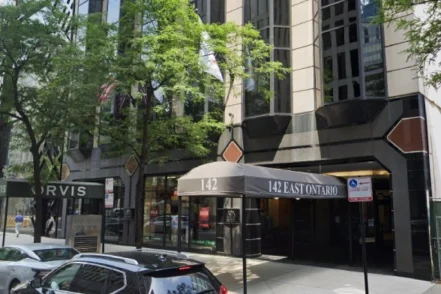 Illinois
IllinoisPositive Sobriety Institute
680 N Lake Shore Dr, Suite 800 Chicago, Illinois 60611
-
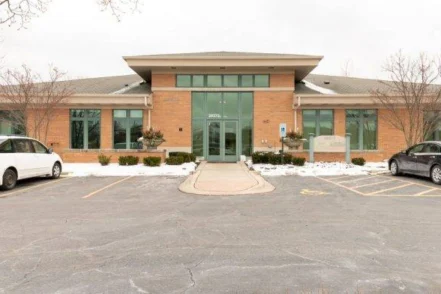 Illinois
IllinoisSymetria Recovery Naperville Warrenville
28373 Davis Parkway, Suite 500 Warrenville, Illinois 60555
-
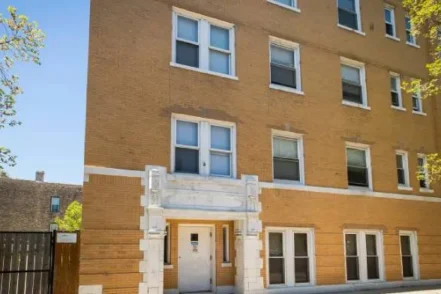 Illinois
IllinoisGateway Foundation Kedzie Recovery Home
1706 North Kedzie Avenue Chicago, Illinois 60647
-
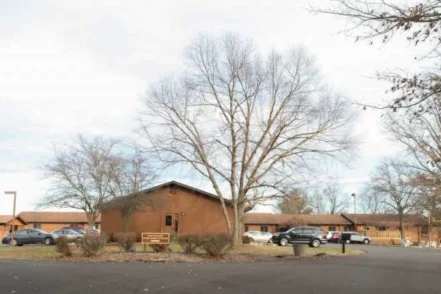 Illinois
IllinoisCenterstone Fellowship House Campus
800 North Main Street Anna, Illinois 62906
-
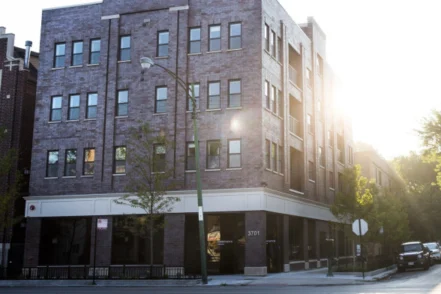 Illinois
IllinoisRosecrance Lakeview
3701 N. Ashland Ave Chicago, Illinois 60613
-
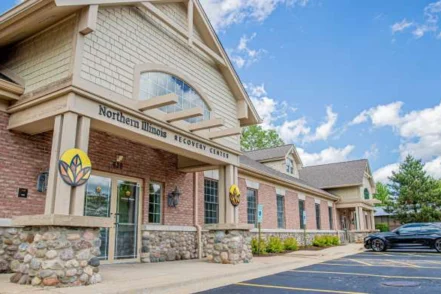 Illinois
IllinoisNorthern Illinois Recovery Center
620 N State Rte 31 Crystal Lake, Illinois 60012
-
 Illinois
IllinoisPreferred Family Healthcare Recovery Resources
428 South 36th Street Quincy, Illinois 62301
-
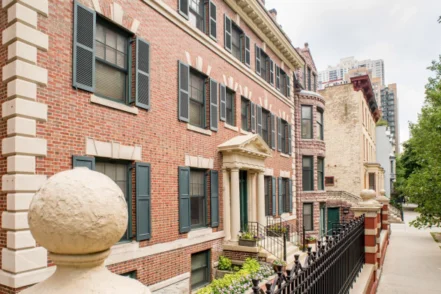 Illinois
IllinoisHazelden Betty Ford Foundation
867 North Dearborn Street Chicago, Illinois 60610
-
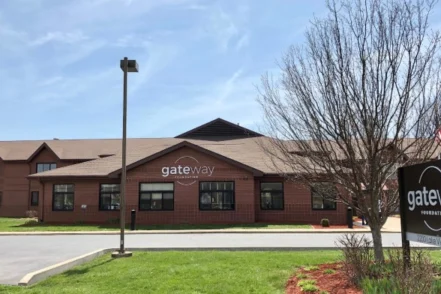 Illinois
IllinoisGateway Foundation
2200 Lake Victoria Drive Springfield, Illinois 62703
-
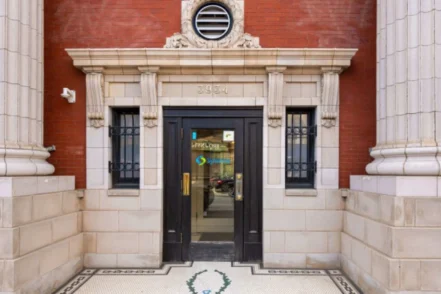 Illinois
IllinoisSymetria Recovery Lakeview
3934 North Lincoln Avenue Chicago, Illinois 60613
-
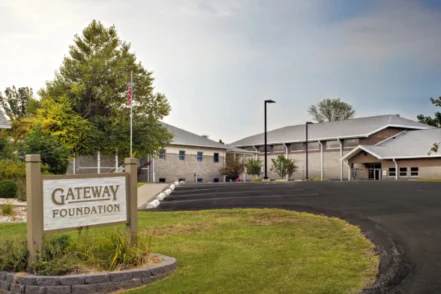 Illinois
IllinoisGateway Foundation Carbondale
1080 East Park Street Carbondale, Illinois 62901
-
 Illinois
IllinoisFootprints To Recovery
411 West River Road, Suite 309 Elgin, Illinois 60123
-
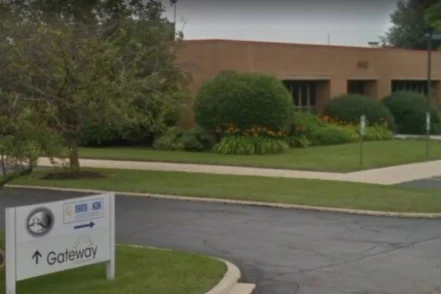 Illinois
IllinoisGateway Foundation Mercy Lane
400 Mercy Lane Aurora, Illinois 60506
-
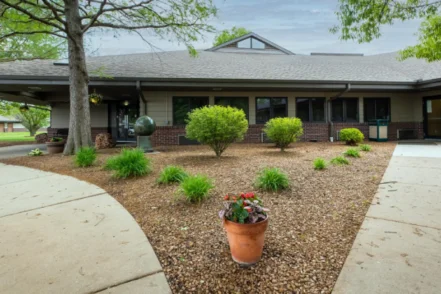 Illinois
IllinoisGateway Foundation Caseyville
600 West Lincoln Avenue Caseyville, Illinois 62232
-
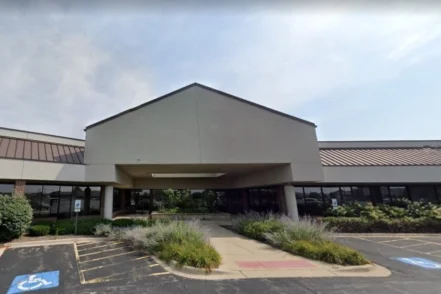 Illinois
IllinoisMathers Recovery Elgin
420 Airport Rd, Suite C Elgin, Illinois 60123
Other Popular Illinois Cities
Browse by Illinois cities
- Cairo
- Calumet City
- Canton
- Carbondale
- Carlinville
- Carlyle
- Carmi
- Carol Stream
- Carpentersville
- Carrollton
- Carterville
- Carthage
- Cary
- Caseyville
- Centralia
- Champaign
- Charleston
- Chester
- Chicago
- Chicago Heights
- Chicago Ridge
- Chillicothe
- Cicero
- Cissna Park
- Clifton
- Clinton
- Collinsville
- Crest Hill
- Crete
- Crystal Lake


